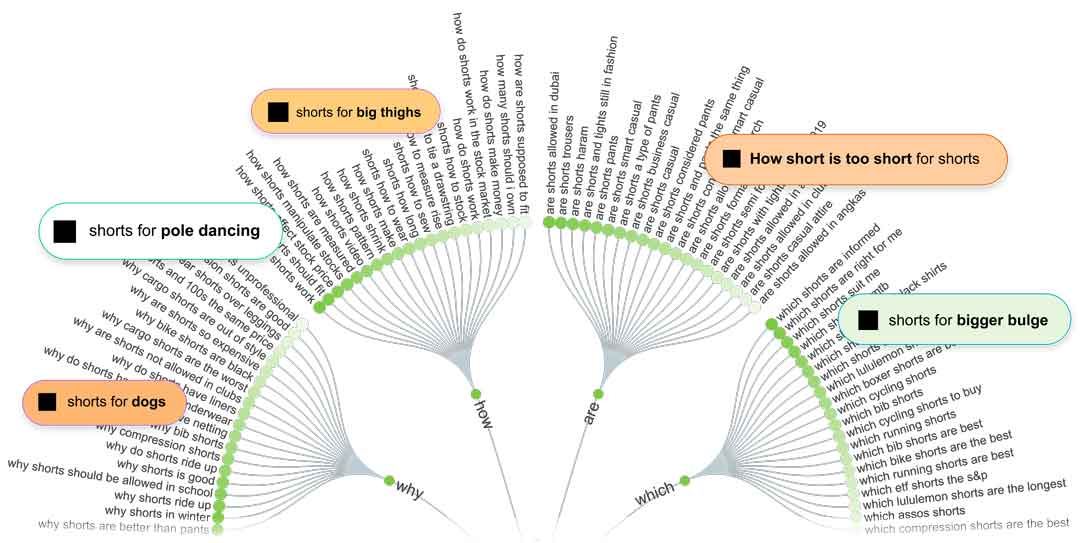Optimizing content for topical authority is like finding the secret ingredient that sets your website apart. Imagine you’re aiming to become a go-to source in your field; this goal requires focusing on several key areas.
Table of Contents
Take your SEO to the next level by becoming an expert in your niche—we’ll show you how to grow your topical authority and why it matters. It’s not just about picking the right tool; you need to understand the techniques that make it tick and how they compare to the authority of a particular domain.
The question on everyone’s mind: how can we accurately measure our progress? And oh boy, dodging common pitfalls is essential, too! Make your mark online by implementing these steps and standing head and shoulders above the rest. Speaking of standing out, let’s talk about Google’s E-E-A-T Framework next.
The Role of Topical Authority in SEO
To make your website stand out, focusing on topical authority is key. This means you need to show off your expertise and reliability in a specific niche. Google uses signals like Experience, Expertise, Authoritativeness, and Trustworthiness (E-E-A-T) to decide which websites deserve top rankings.
When your site proves it knows its stuff by covering topics deeply and accurately, search engines see it as valuable. Algorithms today prefer content that fully answers people’s questions by creating detailed posts or guides related to your field.
You signal to these algorithms that you’re an authoritative source worth paying attention to. High-quality backlinks are also critical for building topical authority.
They act like votes of confidence from other reputable sites within the same domain of interest. Plus, making sure all the information you put out there is relevant keeps both users and search engines coming back for more. Why does this matter so much?
Well-crafted content with a clear focus not only climbs higher in search results but also draws more clicks from potential readers or customers searching for trustworthy information about renewable energy solutions or any topic under discussion.
How to Build Topical Authority
Building topical authority requires strategic effort and a deep understanding of your niche. Here’s how you can optimize your content effectively:
- In-Depth Content Creation: Quality is paramount when establishing yourself as an expert in your field. Prioritize creating well-researched, detailed pieces over producing lots of low-value articles. Long-form content exceeding 1,500 words tends to dive deeper into subjects, signaling to both users and search engines that you are a credible source. Ensure you address all relevant subtopics within your main theme comprehensively; this breadth demonstrates thorough expertise.
- Regularly Publish Content: Maintaining a consistent publishing schedule signals to search engines that your website remains active with up-to-date information. Leave no stone unturned by revisiting older posts for updates, keeping them fresh and relevant. Recycling or refreshing old content helps sustain its value over time. A regular rhythm not only engages readers but also bolsters ranking potential.
- Leverage Internal Linking: Strategically connecting related articles improves user navigation on our site while enhancing its architectural strength. Guide visitors through complex topics using structured pathways between connected contents. Employ pillar pages as anchors around which closely aligned topics orbit.
These techniques not only enrich the reader’s journey but solidify topic relevancy signals sent to search algorithms. By religiously following these steps and always focusing on delivering genuine value, you set the stage for becoming recognized as an authoritative voice in your niche.
Tools and Techniques to Enhance Topical Authority
To enhance topical authority, start with keyword research. Tools like Ahrefs or Moz help find top keywords and content needs. Create topic clusters around these keywords.
Link your main pages to related posts for full coverage. This shows search engines you cover topics well. Also, use semantic search by adding related keywords in your text.
It signals deeper topic knowledge to search engines. Next, look at what competitors do right and where they lack. Study their backlinks and social shares, too.
Try to do better than them by improving on what they’re already good at. Then, involve your audience with user-generated content such as comments or reviews; this shows active engagement on your site, which is a plus for authority building. Adding different types of content, like guest posts or interviews, also boosts credibility.
Remember, understanding gaps in competitors’ strategies can position you as the go-to source within specific topics. Keep engaging users not just through direct responses but by incorporating their voices into new pieces, proving depth beyond typical surface-level discussion. Lastly, consistency across all techniques will solidify brand presence, hence boosting topical relevance over time.
Topical Authority vs. Domain Authority: Key Differences
Understanding the nuances between Topical Authority and Domain Authority is crucial for an effective SEO strategy. Here, we delve into their key differences to guide your optimization efforts.
- Definition: Topical authority zeroes in on your expertise in a particular subject area. While domain authority reflects how credible and trustworthy your website appears overall, topical authority narrows the focus to one topic or niche. For instance, if you’re recognized as an authoritative source on vintage cars, this shows you have high topical authority within that realm.
- Impact on Search Queries: Domain Authority influences broad search visibility across various topics related to your site’s content portfolio. In contrast, having high topical authority means you’re more likely to rank well for searches tightly connected with your specialized subject of expertise—even over sites with stronger domain metrics but less relevance.
- Strategy Importance: Balancing both types of authorities strengthens SEO from all angles. Focusing solely on improving DA might elevate general exposure online yet leave potential untapped in specific areas where deeper knowledge can provide greater value and engagement opportunities, whereas emphasizing topical depth allows domination within chosen niches without relying entirely upon equivalent total-site credibility levels associated typically seen with strong DA scores.
Measuring Your Topical Authority
To measure your topical authority effectively, focus on four key metrics: keyword rankings, organic traffic, backlink profile, and engagement metrics. Starting with keyword rankings. Track how well your content ranks for specific keywords central to your niche.
This gives a clear indication of where you stand in search engine results pages (SERPs). Next is monitoring organic traffic increases to the content optimized for topical authority. A rise here signals that more users find your content through searches related to your topic area.
A direct reflection of growing authority. The third crucial metric is analyzing both the quantity and quality of backlinks pointing to your site’s content. High-quality links from reputable sites are evidence that others recognize you as an authoritative source.
Lastly, don’t overlook engagement metrics like time spent on a page, bounce rate, and social shares. These offer insights into how engaging users find your material; longer times indicate they see value in what you’ve written, while high sharing rates suggest readers deem it worth recommending. Tools such as Google Analytics provide comprehensive data, allowing detailed performance tracking over time, whereas platforms like Ahrefs help assess backlink strength succinctly.
With Hotjar being invaluable for deeper dives into user interaction details. So, we can consistently measure these aspects with reliable analytics tools at hand. You’ll not only pinpoint areas ripe for improvement but solidify our spot as an expert within your chosen field.
Common Mistakes to Avoid When Building Topical Authority
Building topical authority demands precision in content creation and SEO strategy. Avoiding common pitfalls is essential for success.
- Keyword Stuffing: Overusing keywords disrupts readability and penalizes your rankings. Search engines favor content that appears natural to readers, not forced or overloaded with terms you hope to rank for. Balancing keyword use while ensuring the text flows smoothly keeps both readers and search algorithms satisfied. Always prioritize context over quantity when incorporating keywords into your articles.
- Neglecting Content Updates: Letting information stagnate diminishes its value online. Outdated facts or strategies can lead a website to lose credibility among its audience quickly. Sites that frequently update their existing content signal ongoing relevance to search engines. Refreshing old posts with new data, links, or insights supports sustained authority on any topic.
- Lack of Audience Engagement: Not interacting signals disinterest towards user feedback. Users often share valuable perspectives in comments, which can enrich the depth of your content. Actively engaging by responding builds trust and establishes a community around shared interests. Beyond just encouraging return visits, such interactions boost perceived expertise within chosen topics.
Here’s a neat way to think about boosting your content for topical authority: Focus on depth and clarity. Cover topics thoroughly, but keep your explanations simple.
Use related keywords that show you’ve covered the subject well. Don’t forget to update old posts; fresh info keeps them relevant. Engage with your audience through comments or social media to see what questions they have, adding this feedback to your content plan!











One comment
Harvey Koelpin Sr.
October 24, 2022 at 7:11 am
New knowledge is unlocked today! There’s just so many things in SEO that I didn’t know, like this topical authority, but the good thing now is that I am well-aware of what is topical authority.
Comments are closed.